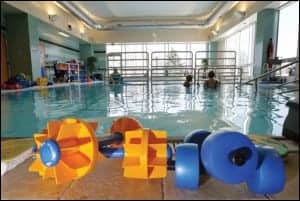.png)
The BBTW method reportedly stems from research conducted by Cynthia Gibson-Horn, PT, in which she observed that the strategic application of small amounts of weight could counter-balance directional losses and dramatically improve stability in MS, Parkinson’s disease, stroke, traumatic brain injury (TBI), ataxia patients and other sensory based motor disorders (SBMD) during clinical applications.
Steve Cookston, Motion Therapeutics, CEO, explains the benefits exhibited in the study’s first phase and the role BBTW plays alongside the San Francisco, Calif-based company’s stabilizing device, BalanceWear, “The first phase of the NIH study supplements other research into BBTW, the technology behind BalanceWear, which has been highly successful in improving mobility for patients with MS.”
The BBTW method ultimately provides a customized, strategically weighted BalanceWear orthotic to patients, tailored to their exact specifications for counter-balancing requirements. The BalanceWear device also provides supplementary sensory information to the nervous system, and is designed to help improve balance and stability in all directions of movement.
Gibson-Horn adds that each case differs in terms of the degree of improvement that can be reached using BalanceWear, however, “We can see immediately upon application if a patient’s balance has been corrected. Further, we know that the improved stability provided by BalanceWear is helpful in increasing confidence, which can lead to improved success in physical therapy often accelerating results,” Gibson-Horn says.
According to the news release, Widner and Allen presented their findings at the Academy of Neurology meeting April 26, and will also present it at the Consortium Of MS Centers annual conference June 1.
For more information on BalanceWear, visit http://www.motiontherapeutics.com
Source: Motion Therapeutics



